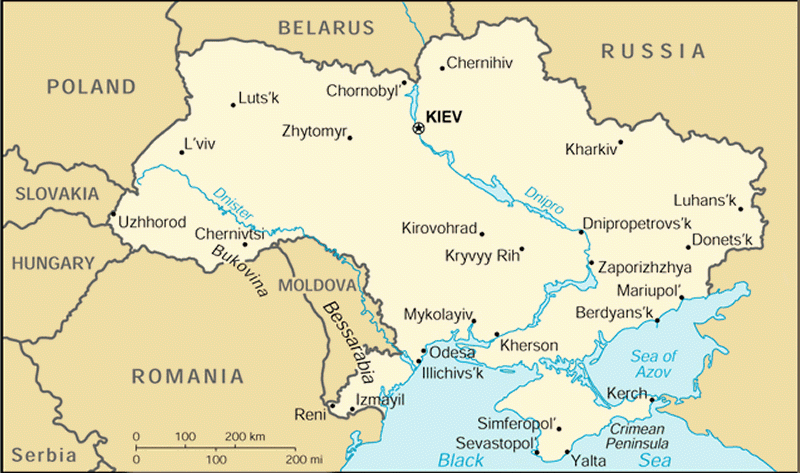On April 4, Volodymyr Yelchenko, the Ukrainian ambassador to the United Nations, spoke at the University about the now four-year-long crisis of Russia’s annexation of Crimea and the brutal “hybrid war” being waged in the provinces of Donetsk and Luhansk.
Yelchenko began by summarizing the events of the past four years.
According to Yelchenko, the crisis began on Feb. 26, 2014, with “little green men” — unmarked Russian soldiers without insignias, armed with modern weapons, and moving in armored vehicles.
Yelchenko explained that these soldiers seized key infrastructure sites and that overnight, the Crimean parliament was seized and a pro-Russian government took power. This government promptly held a referendum on whether to stay in Ukraine or join Russia.
But no one in the international community regarded Crimea’s referendum as official, according to Yelchenko. Then, on March 18, Crimea was annexed by the Russian Federation.
Tensions quickly expanded beyond Crimea. As Ukrainians ousted their pro-Russian president Viktor Yanukovych, separatist groups in the eastern Ukrainian provinces of Luhansk and Donetsk began an active armed conflict with the Ukrainian government, supported by Russian hardware and personnel support, Yelchenko explained.
This quasi-war has since flared up occasionally. Yelchenko and the Ukrainian government estimate the total death count to be approximately 10,000, while hundreds of thousands have been displaced.
Ukraine has since improved relations with the West, distancing itself from the expansionist Russia, Yelchenko explained, citing that Ukrainian citizens can travel to European Union states without visas, bringing Ukraine closer to Western Europe.
The United States has placed heavy trade sanctions on the Russian Federation, which, according to Yelchenko, have reduced the Russian gross domestic product by about 35 percent.
Meanwhile, without seven percent of its land and while fighting an active civil war, Ukrainian GDP has risen up to two percent per quarter, mostly due to closer ties with the European Union.
However, while the issue has largely disappeared from the public’s eye, casualties occur in Ukraine almost daily, according to Yelchenko.
“All human life is precious. One death is a tragedy,” Yelchenko said.

Russia’s goals remain in line with the goals of the Russian Empire and the Soviet Union, primarily territorial expansion, and Russian tactics and technology have evolved greatly since the collapse of the USSR, Yelchenko said.
For the West, there are several critical conclusions to draw on, according to the ambassador. Fake news, cyber attacks on critical infrastructure such as power plants, and the use of internet trolls have all been implemented to create a doctrine of hybrid war, according to Yelchenko.
Yelchenko explained that no one is entirely sure what hybrid warfare is. This hybrid war strategy has been implemented alongside traditional military tactics and equipment to take territory without drawing international attention or responses.
It is suspected that these same tactics have been used to influence foreign elections and governments far beyond the nations bordering Russia.
Yelchenko’s talk was sponsored by the Center for International Security Studies; the Princeton Institute for International and Regional Studies; the Program in Russian, East European and Eurasian Studies; and the Liechtenstein Institute on Self-Determination. The lecture took place at 4:30 p.m. in McCosh 50.








